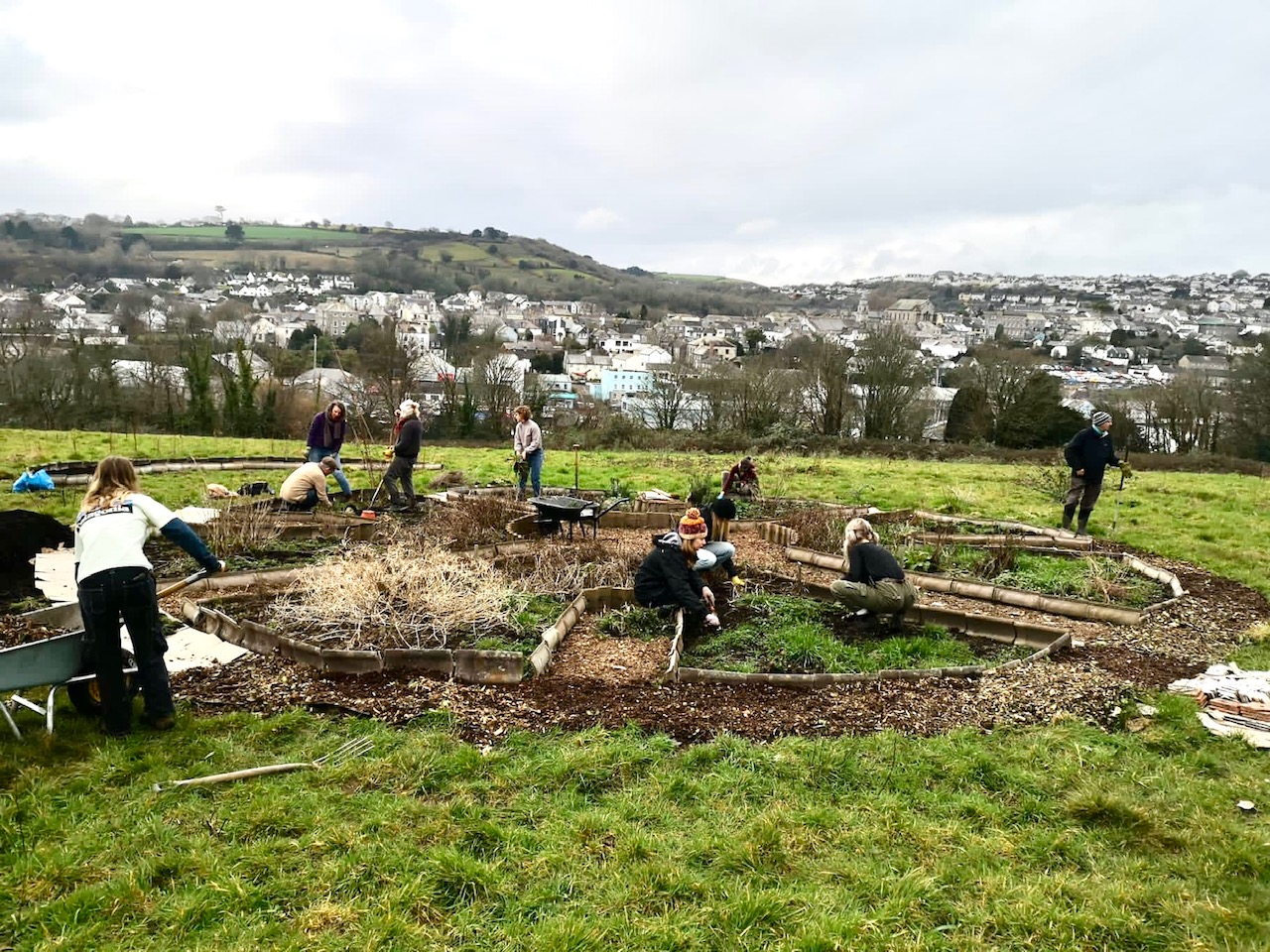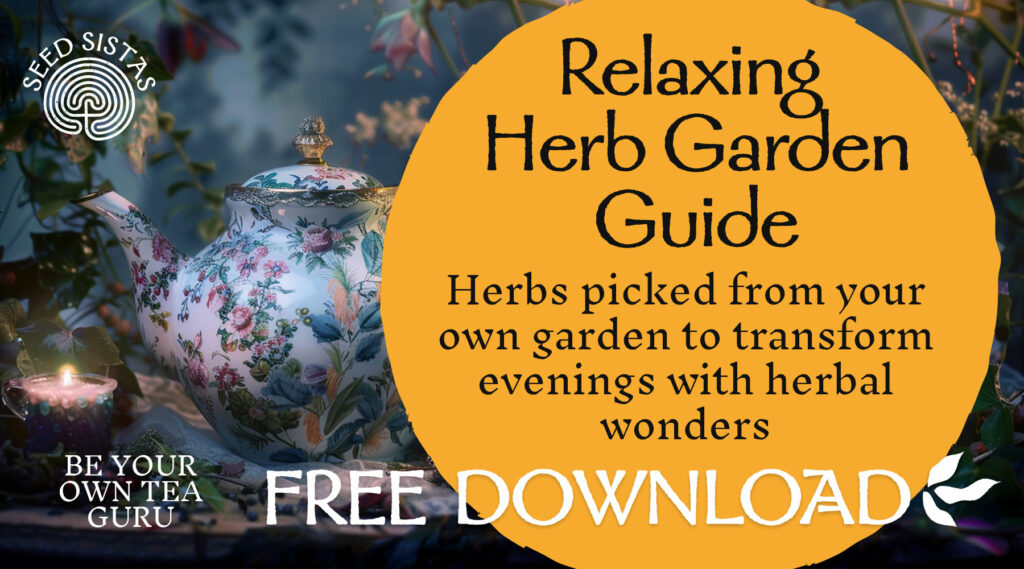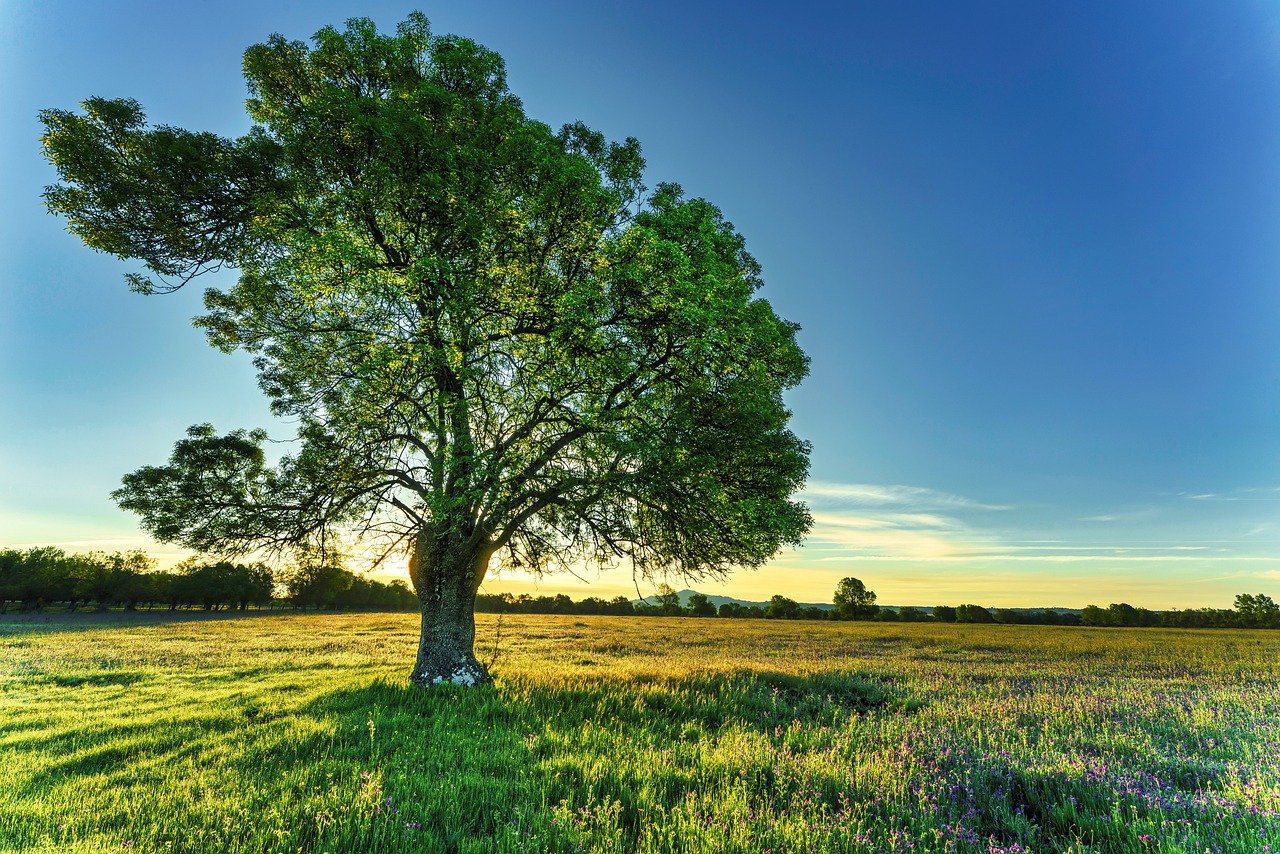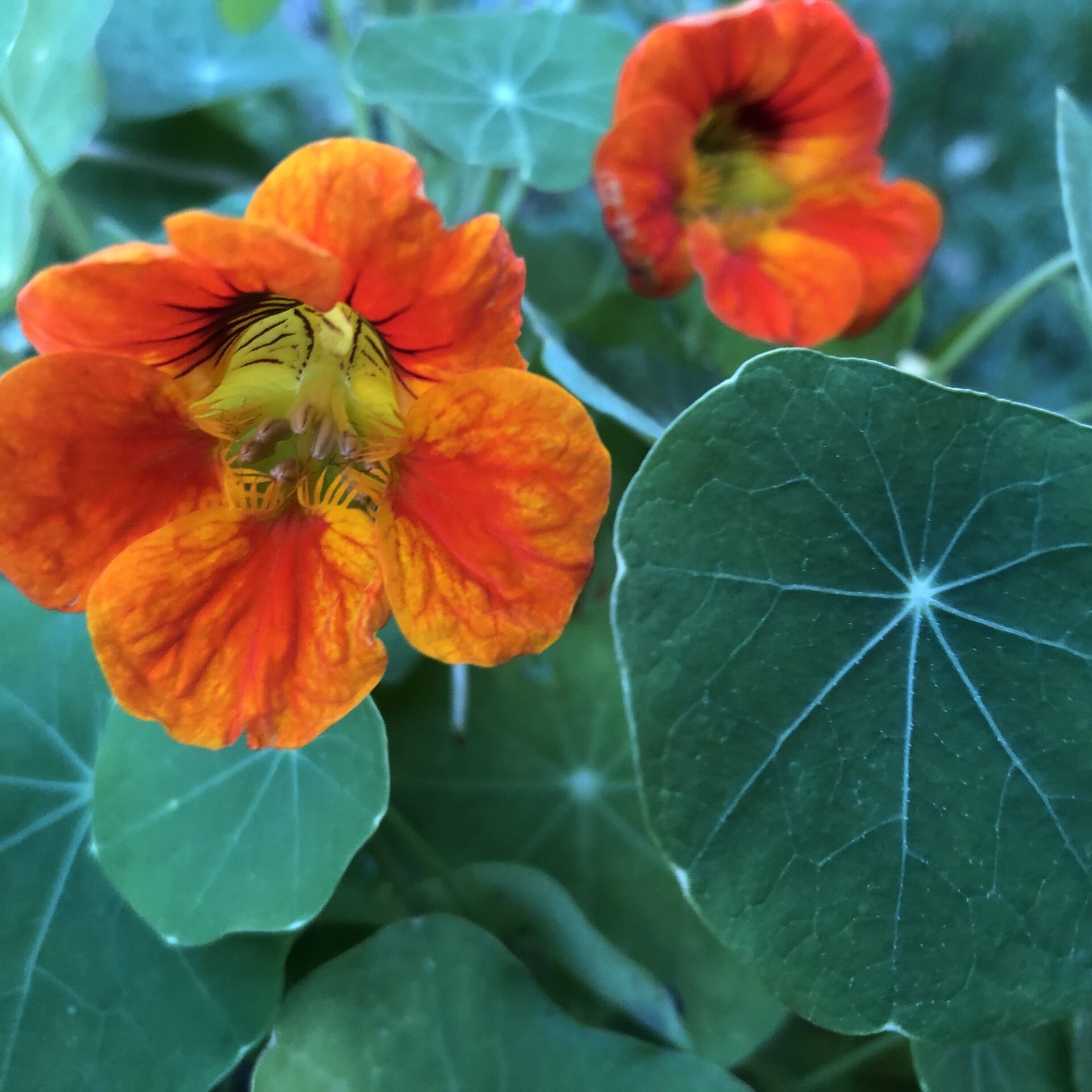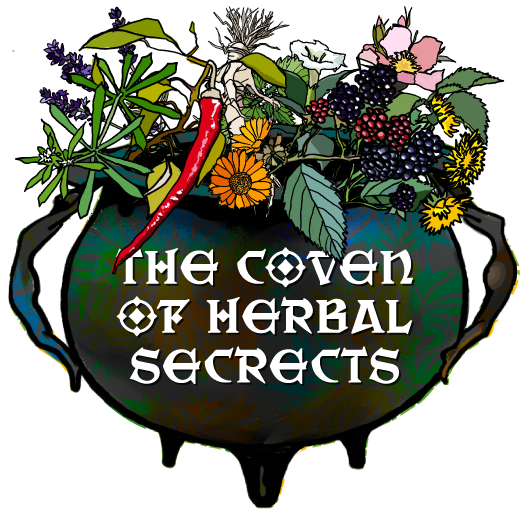One of the The Seed SistAs 2024 Medicine Garden Grants went to Loveland Medicine Garden which is situated on the Penryn estuary in Cornwall. It is part of a community growing project that comes under the umbrella of Falmouth Food Coop – a grocery, community food kitchen and field. www.falmouthfood.coop
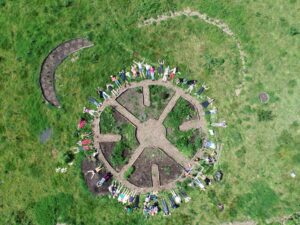 Our medicine garden was dreamt up in late 2021 on the tail of the pandemic. Through winter ‘eat and meet’ sessions, a collaborative design intuitively took shape echoing astrological themes and resonating with an ancient map – The Nebra sky disk: 3,600 years old, and said to be the world’s oldest surviving map of the stars inlaid with gold believed to be from our nearby Carrnon River. From such wonderful ancestral intuitive beginnings, we formed our design on the ground at the time of Imbolc (February) with a ‘no dig’ method of laying down cardboard covered with compost. The outlines of the beds were later tiled and herbs were planted.
Our medicine garden was dreamt up in late 2021 on the tail of the pandemic. Through winter ‘eat and meet’ sessions, a collaborative design intuitively took shape echoing astrological themes and resonating with an ancient map – The Nebra sky disk: 3,600 years old, and said to be the world’s oldest surviving map of the stars inlaid with gold believed to be from our nearby Carrnon River. From such wonderful ancestral intuitive beginnings, we formed our design on the ground at the time of Imbolc (February) with a ‘no dig’ method of laying down cardboard covered with compost. The outlines of the beds were later tiled and herbs were planted.
2024 will be our third year, and with the wonderful support from the Seed Sista’s Community Garden Grant, we intend to establish plants that have until now been tricky to include. The garden is a volunteer project and a learning curve for us all as we get to know the site and growing conditions: very wet in winter, windy all year and dry in summer. The herb group is a mix of participants with varying levels of knowledge and experience in propagation, production and use of culinary and medicinal herbs.
Planning Our Medicine Garden
The overall plan is to develop a specimen garden – a medicine wheel, physic garden or ‘mother bed’ that will house over 30 key plants used in an apothecary to create teas, tinctures and balms. We recognise that there are a huge variety of herbal concoctions readily available to support a healthy lifestyle that we can grow ourselves, and in doing so, combat isolation and promote well-being through learning and working together.
We have at least five people in the group, either training in medical herbalism, practicing or knowledgeable through cultivating lifelong skills. The emphasis is on learning together through doing – either through impromptu herb foraging walks in the field or through workshops focusing on herbs for health, herbal preparations and flower essences, creating a herb garden and finding helpful herbal allies through sensory attention and studies of constitution and energetics. We are slowly and steadily creating a hub that matches folk who are interested in learning more about herbalism with herbalists who are studying or practicing herbalism and can share their skills with the community.
How We Share Herbs in the Community
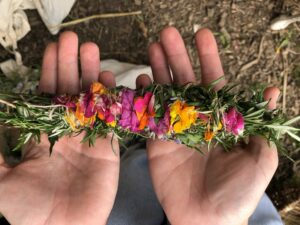 Added to this are by-products of the herbs themselves, dependent on their growth and proliferation. So far, these have manifested as chamomile tea bag giveaways for an artist-led field day; Calendula seed packets with instructions on making infused oil as part of a local film event on seed banks. And through the delight of gathering together in the garden, chatting and binding herbs, we have produced beautiful herbal smoke bundles for our local Folklore and Witchcraft Museum and Health Food Store. These activities support our aims and are rooted in the joy of being there, on the land, in the garden and sharing our experience.
Added to this are by-products of the herbs themselves, dependent on their growth and proliferation. So far, these have manifested as chamomile tea bag giveaways for an artist-led field day; Calendula seed packets with instructions on making infused oil as part of a local film event on seed banks. And through the delight of gathering together in the garden, chatting and binding herbs, we have produced beautiful herbal smoke bundles for our local Folklore and Witchcraft Museum and Health Food Store. These activities support our aims and are rooted in the joy of being there, on the land, in the garden and sharing our experience.
Our vision is to educate, learn and create – sharing knowledge for now, and hoping that in the coming seasons, we will be able to offer more in the way of healing preparations for our local community.
If you’re interested in learning more about our design process of the Loveland Medicine Garden, you can DOWNLOAD the PDF to find out more.
By Annie Lovejoy from the Loveland Medicine Garden Working Group

